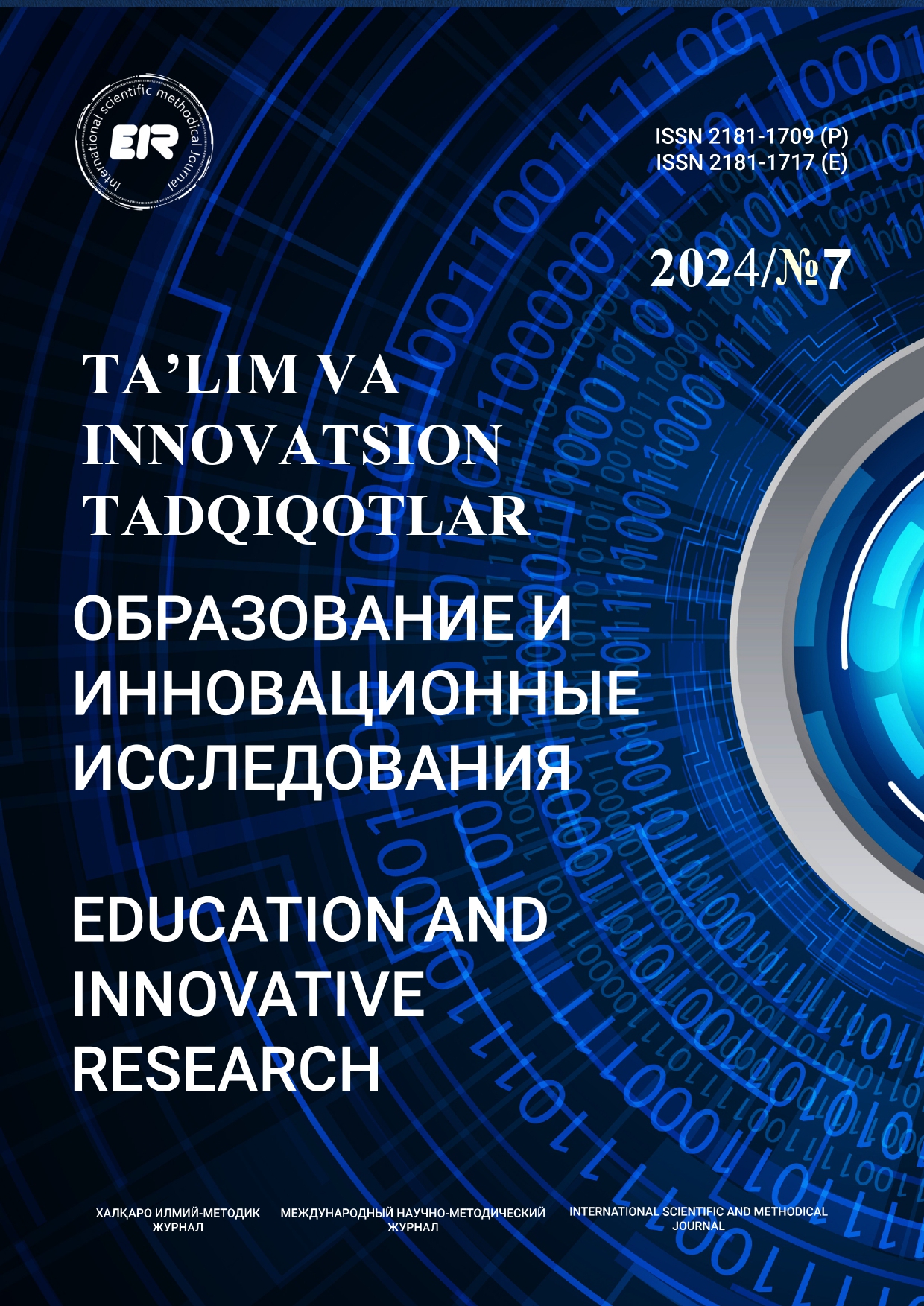PEDAGOGICAL POSSIBILITIES OF IMPROVING PREPARATION OF EDUCATION TEACHERS FOR PROFESSIONAL ACTIVITY BASED ON COACHING TECHNOLOGIES
Kabulova Sanobar Eshnazarovna, teacher of Gulistan State Pedagogical Institute
Keywords:
teacher training, coaching technologies, reflective practice, professional development, teacher education, adaptive learning, teacher effectiveness, student outcomes, personalized support, educational innovationAbstract
Preservice teacher education is an important aspect of the education system and ensures that teachers are well equipped to meet the diverse needs of students. This article explores the pedagogical potential of using coaching technologies to enhance the training of teacher educators. By integrating coaching techniques into teacher education programs, educators can develop a more reflective, responsive, and flexible teacher workforce. The article examines various coaching methodologies, their use in teacher education, and their potential benefits for teachers and students. Case studies and theoretical insights highlight the transformative effects of mentoring on teacher effectiveness and student outcomes, while addressing challenges and future directions for research and practice.
References
Knight, J. (2018). Instructional Coaching: A Partnership Approach to Improving Instruction. Corwin Press.
Lofthouse, R., & Leat, D. (2013). An international perspective on the practices and challenges of instructional coaching. Professional Development in Education, 39(3), 271-286.
Showers, B., & Joyce, B. (1996). The evolution of peer coaching. Educational Leadership, 53(6), 12-16. Tschannen-Moran, B., & Tschannen-Moran, M. (2011). The coach and the evaluator. Educational Leadership, 69(2), 10-16.
van Nieuwerburgh, C. (Ed.). (2017). Coaching in Education: Getting Better Results for Students, Educators, and Parents. Routledge.
Bloom, G., Castagna, C., Moir, E., & Warren, B. (2005). Blended Coaching: Skills and Strategies to Support Principal Development. Corwin Press.





